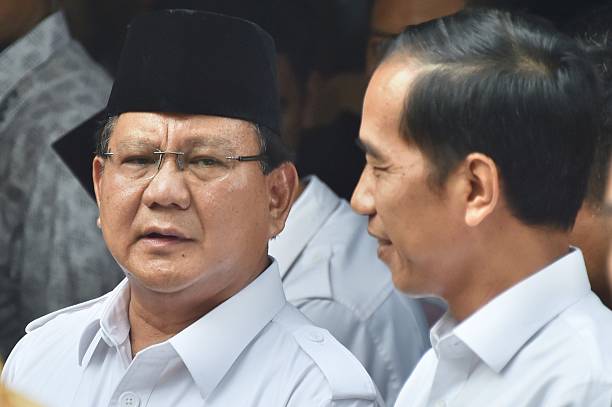Regardless of the many goings ons behind the scenes in the world of Indonesian politics leading up to the 2019 presidential election, the one thing that’s assured is that President Joko Widodo will run for reelection. At this point in time, barring any disastrous scandals, his victory is also all but assured, and that near-certainty is backed up by the incumbent’s hypothetical landslide win in the latest presidential survey — possibly the most ominous one yet for anyone challenging him.
According to a poll released today by Kompas’ Department of Research and Development (Litbang) — one of the most trusted and reliable survey bodies in the country — if the presidential election were held today, President Jokowi would receive a whopping 55.9% of the votes. That is miles ahead of Gerindra chairman Prabowo Subianto — who already lost to Jokowi in 2014 and whose 2019 candidacy still depends on his party consolidating a coalition to fulfill the presidential nomination threshold requirement — who was picked by just 14.1% of potential voters in the survey.
Not only do those numbers look bleak for Prabowo, they represent a downward trend for the former general, who had received 18.2% of the votes in the same poll six months ago. By comparison, Jokowi’s numbers have increased considerably, up from 46.3% six months ago.
Former Military Commander Gatot Nurmantyo — whose chances of becoming the third presidential candidate are slim but not mathematically impossible — didn’t do so well either, with a low score of 1.8% as compared to 3.3% six months ago.
Opponents wishing to discredit President Jokowi would have a hard time convincing the masses, as the survey also showed that 77.2% were satisfied with the performance of the current central government. That number rose by 9.1% compared to a year ago.
Jokowi’s score in this survey is already higher than the percentage of votes he received in the 2014 presidential election (53.15%), during which time his sole rival Prabowo put up a close fight by securing 46.85% of the popular vote.
Kompas’ survey was carried out from March 21-April 1, involving 1,200 randomly picked respondents in 32 provinces. The survey claims to have a margin of error of +/- 2.8% and a 95% confidence level.




